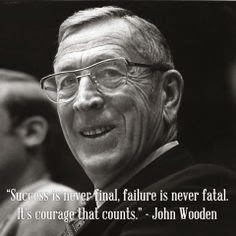
I've been to Boston a few times in my life, and I've seen the historic sights that there are to see there, but I've never been to Fenway Park, the home of the Red Sox.
It's long been a fantasy of mine to go there — and to some of the other classic ballparks in America. A friend of mine and I used to talk about going on such a road trip — the way guys often do — and, to a certain extent, I think we were both serious about it.
But, on a more realistic level, I think we both realized it was just a fantasy, nothing more. Certainly nothing that we were ever likely to do.
The prospect became more remote as many of those historic, classic ballparks — Tiger Stadium, Yankee Stadium, Comiskey Park — disappeared. (I went to the old Busch Stadium in St. Louis several times when I was younger, but it has been replaced in recent years, and I went to the Astrodome in Houston when I was about 10 years old — but the 'Dome hardly qualifies as a classic ballpark.)
 Fenway is the oldest active major league ballpark, and today is the 100th anniversary of its opening.
Fenway is the oldest active major league ballpark, and today is the 100th anniversary of its opening. It's hard to imagine a Red Sox great who never played in Fenway. Babe Ruth pitched there. Tris Speaker roamed its outfield, as did Ted Williams and Carl Yastrzemski.
After I had graduated from college and went to work on sports copy desks for daily newspapers, Wade Boggs was a regular at third base for the Sox, and Roger Clemens set all kinds of records on the mound.
Talk about a field of dreams.
 I, for one, will never forget watching Carlton Fisk wave his game–winning homer into fair territory against Cincinnati in the 1975 World Series.
I, for one, will never forget watching Carlton Fisk wave his game–winning homer into fair territory against Cincinnati in the 1975 World Series.(Not that the folks who put together the postseason highlight reels would ever let me forget it.)
The "Green Monster" is a fixture in left field, one of many quirks in an old ballpark where, apparently, amenities have always been rather sparse for spectators.
"It's not easy to find in the labyrinth Boston calls a city plan," writes Stephen Cannella in Sports Illustrated. "If you manage to get there by car, it's nearly impossible to park."
And that's just outside the ballpark.
I gather it's always been a kind of Joe–Friday–just–the–facts–ma'am sort of place.
"The Red Sox didn't even hold an opening ceremony ... until May 17," writes Cannella. "The implicit message from the new Fenway to its fans: This is a baseball park. You are here to watch baseball."
They still come to Fenway to watch baseball — which isn't such a bad thing at a time when so many entertainment venues seek to be all things to all people simultaneously — and they'll be celebrating this centennial in Boston all year.
For the rest of 2012, the ballpark and the ball club will have to share the billing.
But today, everyone's attention is, as it should be, on Fenway and its connection to the history of the city and the sport.
There is a game being played at Fenway this afternoon, and it's appropriate that Boston's longtime rivals, the New York Yankees, are in town this weekend.
I have no evidence to support this, but I have to think the scheduling was by design.
Even if it wasn't, even if the opponent had been scheduled completely at random and the Sox were playing the most unexciting, nondescript franchise in the league (and, based on the 2011 standings, I suppose that would be the Twins or the Mariners — or, if the schedule makers wanted to keep it in Boston's division, the Orioles), this would still be a special day in Boston.
But the fact that the foe at Fenway today will be New York makes it that much more special.
Happy birthday, Fenway — and many, many more.







